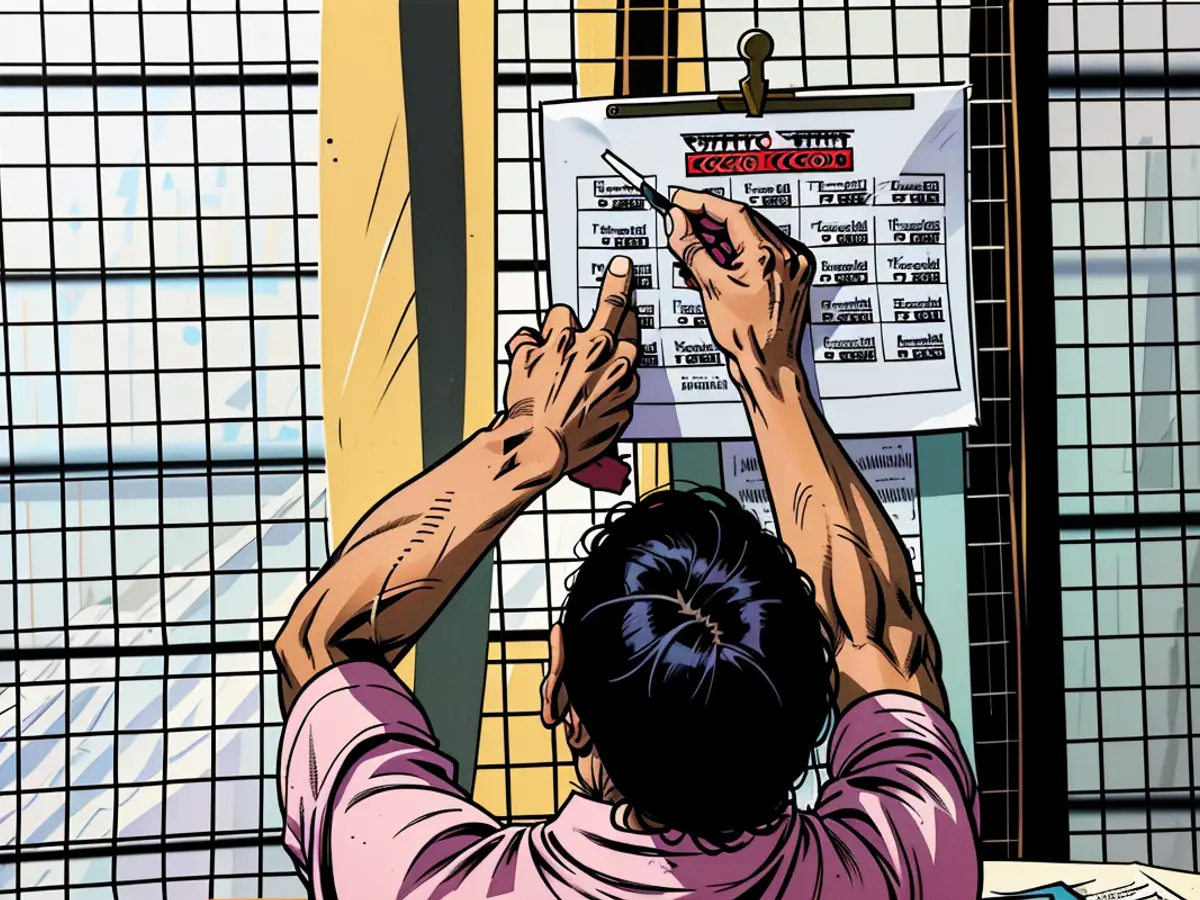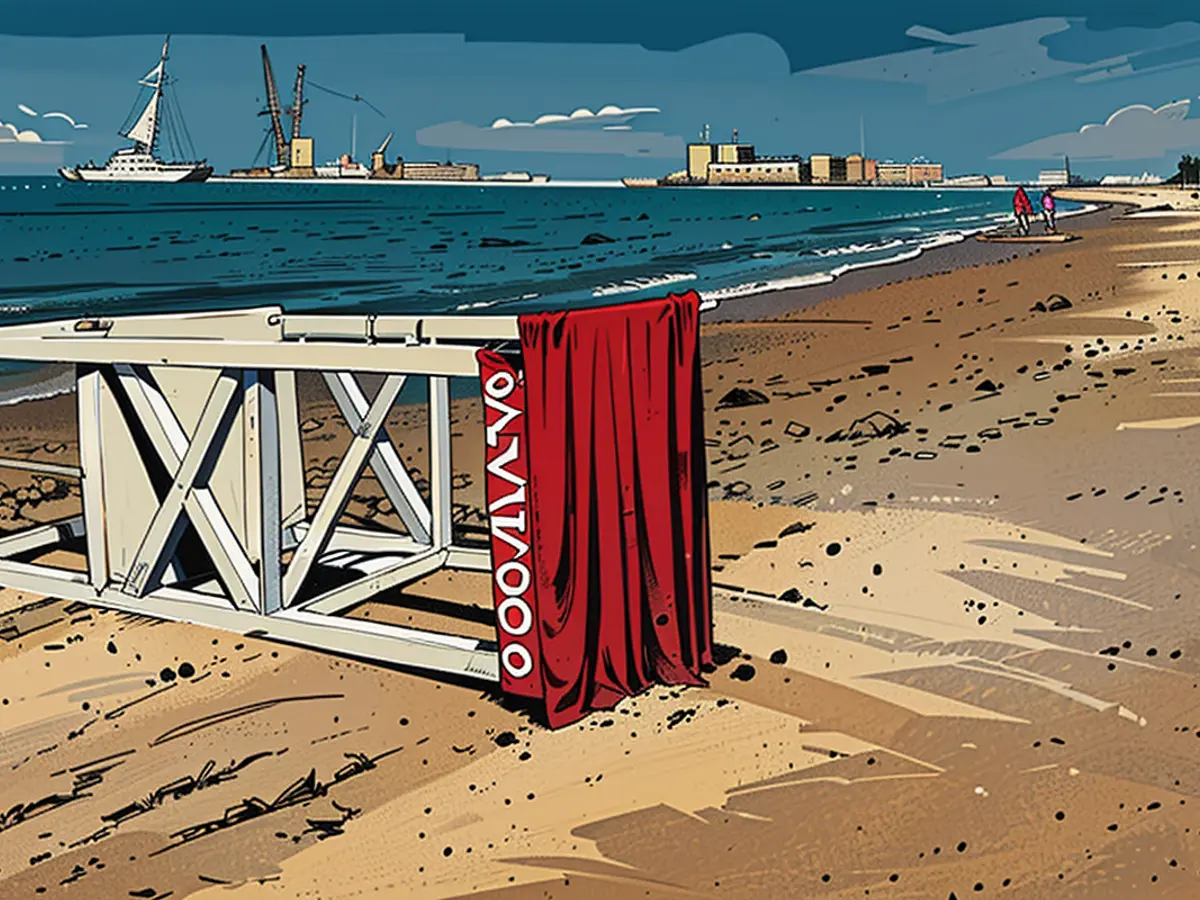India's Voting Process - In India, Prime Minister Modi's party experiences a loss during the election.
The Indian Prime Minister, Narendra Modi, has declared himself victorious in the recent parliamentary elections. While his Hindu-nationalist BJP party is set to be the strongest, it has suffered significant losses and is now dependent on coalition partners to form a government. This reversal of expectations was surprising, as Modi had undoubtedly set the bar high for success in the election campaign, with a goal to secure a majority over 400 seats and increase his majority.
The first phase of the parliamentary elections commenced a few weeks ago, with over 970 million people being called to vote. Modi's coalition had hoped for a staggering number of wins, but has fallen short of expectations. Despite these losses and the likelihood of governing with coalition partners, the 73-year-old was showered with flower petals at a BJP headquarters celebration, symbolising his perceived victory.
Modi's campaign was marked by a strong focus on his own persona and his Hindu-nationalist agenda, describing himself as India's strongman. His ambition was to be the second Indian leader, after Jawaharlal Nehru, to serve three consecutive terms. Instead, it seems that his acceptance into office may be weakened after this electoral setback.
The central theme of the Hindu-nationalist party's electoral campaign was to turn India into a state for the Hindu majority, which comprises 80% of the population. This has led to the increasing persecution of religious minorities, with Muslims in particular facing persecution. Raids on minority-owned establishments or even imprisonment have become commonplace in the past decade. For instance, a centuries-old mosque was destroyed, and a large Hindu temple was subsequently built on the site. This runs counter to the values propagated by the country's founder, Mahatma Gandhi, who championed a separation of religion and state.
During Modi's rise to power, the Indian economy displayed remarkable progress, with a doubling of economic performance. India has become the fifth largest economy in the world, expediting its appeal to global investors. With innovative technological advancements and record-breaking growth rates, India has been making great strides that many feared might never be achieved. However, thisProgress has come at a cost – unemployment and inflation are high, with almost 800 million of India's 1.4 billion people relying on social assistance. This highly uneven growth has been noted by the opposition party, which won more support than expected.
In light of these findings, Rahul Gandhi, leader of the opposition Congress Party, expressed his pride in the people of India for rejecting Modi as head of government. There have been growing concerns about the state of democracy under Modi's leadership, with claims of the undermining of the independence of the judiciary and the media. The loss of these vital democratic institutions could have significant repercussions for the country's long-term health. The West, meanwhile, is continuing to court the potentially influential figure and is ignoring concerns regarding the erosion of democracy in the country. Modi is capitalising on India's increased global reputation and strategic importance, ignoring the deteriorating conditions within the country.
The opposition has also criticised Modi for using state institutions against them. Several opposition politicians were remanded into custody during the election campaign due to corruption allegations. Modi has also been accused of attributing every positive development in India to his own leadership while India's increasing importance on the world stage is tied to close ties with the West, seemingly without concern for growing concerns about the health of democratic institutions there. Modi hasn't explicitly addressed the challenges facing his nation in the election victory speech and instead focuses on India's increasing global influence.





